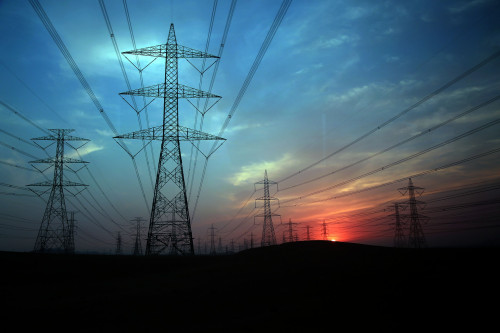Five implications of energy price rises – it’s time to act!
Human society, let alone life in general, can’t run without energy. In the UK we’ve grown accustomed to the ease of flicking the switch or filling up the tank and having instant access to relatively cheap energy. The rapid rise in wholesale prices, fuelled further by the war in Ukraine, has been a shock to the system with repercussions for everyone – albeit in hugely varying degrees of severity. Fossil fuel companies are enjoying record profits while the number of fuel poor households is rising. In the middle of all this the Intergovernmental Panel on Climate Change have issued another alarming report, warning that time really is running out. The climate crisis has reached a crunch point and the cost of not addressing it fast is also rising, both for people and nature (if you believe that the two are separate).
Are there any possible positive outcomes to be found here? Let’s look at five ways in which high energy prices could stimulate climate action and improve lives:
Reducing energy demand through building upgrades pays off –
The cheapest energy is “negawatts” or energy that isn’t used. UK has some of the least energy efficient housing stock in Europe and national attempts to improve it have been stalling. Around a third of York’s carbon emissions comes from heating and powering our homes because the vast majority are not well insulated. The Italian government offers 110% grants towards home retrofit projects because it’s an investment in national infrastructure and they recognise retrofitting is a difficult process to do right. The benefits are greatly reduced carbon emissions and happier people living in more affordable and better homes. For now in England, only lower income households (who often live in the least efficient houses) can apply for some insulation grants. If your household income is up to £30,000, in York it’s worth checking out the council’s Home Upgrade Grants offer which has also recently been extended to solar panels and heat pumps. The options for the rest are investing ourselves if we can – see York Open Eco Homes for inspirational case studies – and/or lobbying for more government support, such as calling for a Great Homes Upgrade with the New Economics Foundation.
Low carbon technologies become more appealing –
payback time is an important consideration in most people’s decisions so higher energy prices make things like solar panels and heat pumps more viable. For the cost of a modest bathroom revamp (payback somehow doesn’t get discussed with those…) one can easily get a solar PV array on a suitable roof, which would help reduce energy bills. You could possibly even get an electric battery but their cost effectiveness is more debatable. A hot water tank or heat battery is likely to be a better way to store surplus renewable energy. Having largely ignored the obviously superior if difficult issue of energy demand reduction, the UK government is thinking big on heat pumps. Due to their high efficiency when installed well, they can be a good investment even without insulating a house really well first and Clean Heat Grants launching this spring should help make it even better. If you are considering getting one, this Heat Geek’s video could help you choose the right installer:
Fracking is not an answer –
over-consumption of fossil fuels is what got us into this mess and digging more out of the ground won’t help. The government is being pressured into lifting the ban on fracking as an answer to rising prices. However, even if we were to ignore the environmental costs, the benefits of doing that are highly unlikely to go beyond the fracking well owners – unless there is nationalisation which is even less likely. Despite prices already going up then, in 2021 Britain exported almost twice as much gas as in 2020 and in the years before the pandemic too. Gas will be sold to whoever pays most, not kept in the country to help reduce people’s bills. If anything, we need to be pushing for reducing rather than prolonging our reliance on fossil fuels and help fight the disinformation around the issue – you can help do so for example by writing to your MP.
Less is more –
making stuff requires energy, which produces carbon emissions, so the more we consume the more we contribute to the problem. Obviously we can’t live without any stuff but we can be choosing wisely and carefully weighing up what we actually need, buying second hand or good quality that lasts. Backed by scientific findings, The Jump movement calls for ‘less stuff, more joy” through making 6 lifestyle shifts. If you need help with making a start or finding the motivation, it’s worth checking the Jump.
Green recovery needs to accelerate –
according to recent research published in Nature and the Guardian, so far only about 10% of UK’s pandemic recovery spending has been “green”. This is despite the government’s rhetoric on building back better and despite the lasting benefits brought by investment in climate-friendly measures, such as energy efficiency, nature restoration, car dependence reduction or renewable energy. Apparently, “after the 2008 financial crisis…about 16% of recovery spending went towards activities that reduced greenhouse gas emissions or improved the environment.” Clearly there is even more urgent need now to speed up our move away from fossil fuels towards a zero carbon, equitable future. Carbon Brief has shown that reducing climate policies, or “cutting the green crap”, actually costs more and adds to our bills so we need to resist any calls for cutting green levies.







